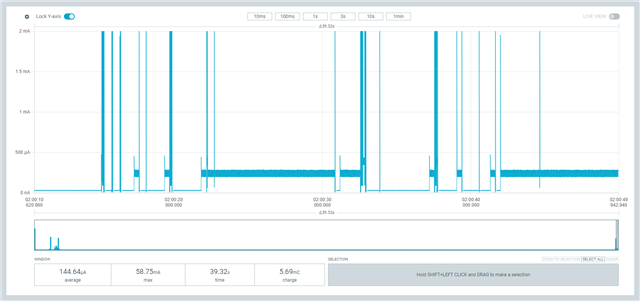I run the system_off example without the system actually going off, by removing all the calls to start the system_off worker. Instead of going to off, I let the system enter sleep mode (k_sleep()).
I enabled wake up on nfc.
After a reset, the system enters sleep (4-5uA sleep current). After waking the system by nfc, the sleep current sometimes becomes 200uA, sometimes stays at 4uA. See picture below.

It seems to be related to the state of the nfc peripheral as this is the only peripheral used.
Any idea how to prevent the system going to sleep with a 200uA sleep current?


